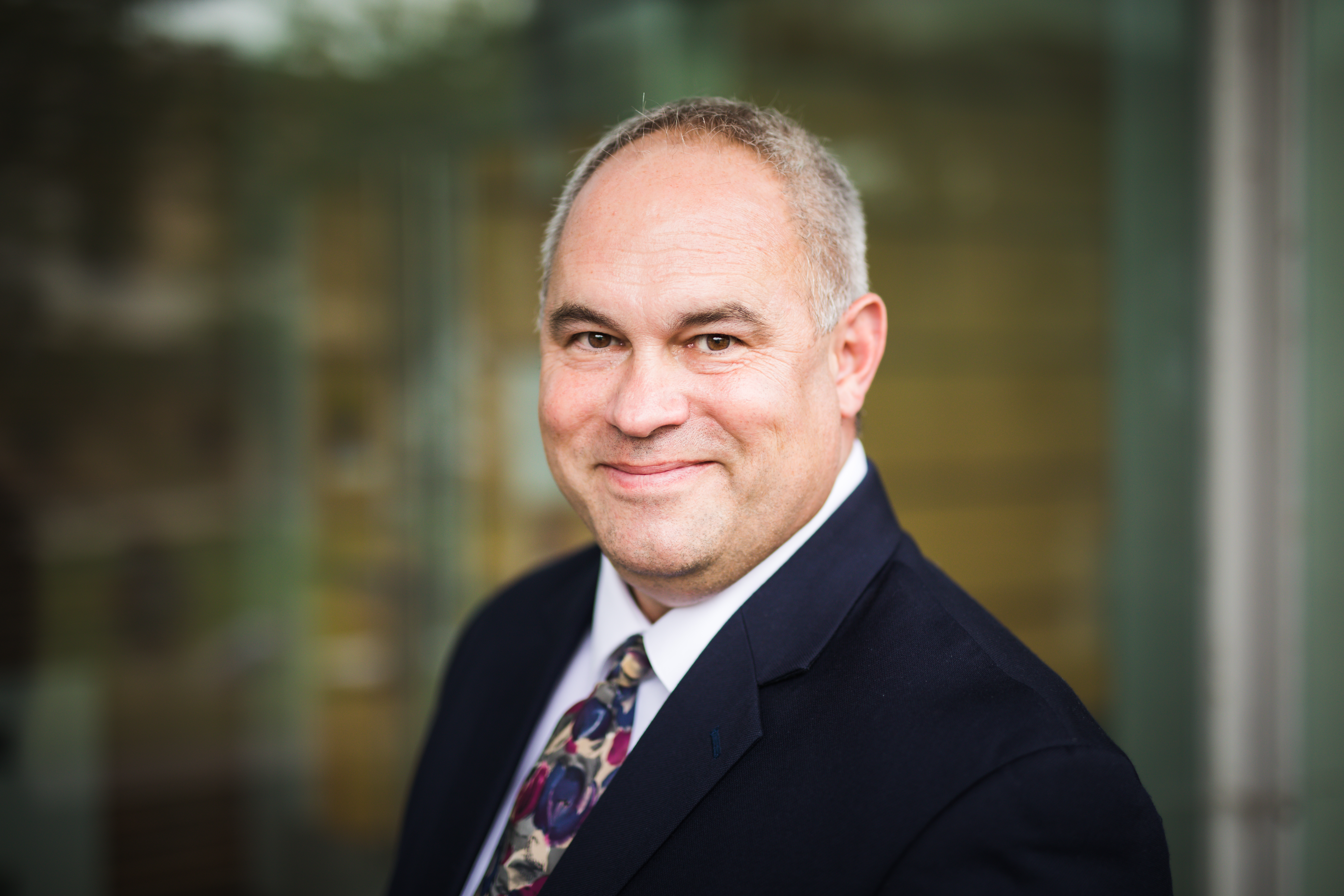
Lehigh University has named Professor Michael Gusmano the inaugural Iacocca Chair in the College of Health (COH), recognizing his distinguished career in health policy, population health and bioethics. This prestigious five-year honorary appointment—awarded in each of Lehigh’s five colleges—is named in honor of Lee Iacocca ’45, the iconic business leader most famed for restructuring the Chrysler Corporation. Iacocca’s legacy is built on his belief that cultural and community understanding is integral for the next generation to thrive in the global economy.
The Iacocca Chair is one of the highest academic honors at Lehigh. Nominations are made by faculty peers, and appointments are approved by the provost and the board of trustees. These appointments honor not only academic excellence, but also collaboration and visionary contributions to the university community. Gusmano’s appointment as the first Iacocca Chair in the College of Health underscores his pivotal role in helping to establish and build Lehigh’s newest college.
“There are very few academics in the country that can say, yes, I helped create a college that didn’t previously exist,” Gusmano says. “This has been really one of the most rewarding things I’ve done.”
Since joining the College of Health in 2021, Gusmano has served as professor of population health, associate dean for academic programs in the College of Health, director of the Center for Ethics and co-director of the health, medicine and society program. He has been instrumental in developing the undergraduate, master’s, and doctoral programs and in expanding the college’s interdisciplinary footprint, including the forthcoming BS in Business and Health launching in Fall 2025.
“Michael is a prolific researcher, a dedicated instructor and a generous colleague in every sense. I'm grateful to work closely with him,” says Erica Hoelscher, associate dean of faculty and staff in the College of Health; and professor in the department of theater in the College of Arts and Sciences.
The College of Health has tripled its faculty and student body in the past four years. Gusmano played a central role in designing the curriculum, mentoring students and shaping academic governance during this period of growth. He also supports students in the college’s 4+1 accelerated masters program, enabling them to earn both bachelor’s and master’s degrees in just five years.
Gusmano’s teaching draws from three decades of scholarship and real-world policy engagement. His courses—especially in health politics, policy, and population health bioethics—evolve in real time to reflect changes in the national and global policy landscape. His scholarship has consistently bridged public policy and global health.
“Michael is a highly collaborative scholar, whose research promotes ethical clinical care and provides brilliant insights into how policy affects human health across the globe,” says Beth Dolan, dean of the College of Health. “He brought to Lehigh expertise built through decades of contributions as a Research Scholar at the Hastings Center, the premier U.S. think tank for bioethics, as well as deep experience leading programs at several outstanding universities.”
One of Gusmano’s signature research initiatives is the World Cities Project, now in its 25th year. This comparative study examines how aging, equity, and health systems intersect across global megacities. The project, a collaboration among international research partners, has generated critical insights into urban health disparities and systems resilience.
He also leads an NIH R01-funded project on xenotransplantation ethics, which explores the implications of using genetically modified pig kidneys for human transplantation. The project has produced a model informed-consent framework to guide clinical trials and health institutions. Collaborating with biotech leaders like eGenesis and United Therapeutics, Gusmano’s work is helping shape the ethical infrastructure for one of the most complex areas of biomedical science.
“Five years ago, when we were writing this proposal, one of the comments was that it might be too soon for this project. They thought we were ahead of science,” Gusmano elaborates, “As it turns out, we actually timed it just right.”
As Iacocca Chair, Gusmano plans to use the accompanying resources to support student research opportunities and collaborate with junior faculty on emerging projects. “That’s the fun part when you get to be at my stage of a career,” Gusmano explains. “You try to collaborate with other people and help them grow as scholars.”
One collaboration is a project with John Hughes, chair of the department of biostatistics and health data science. Gusmano and Hughes are investigating racial and gender disparities in the use of Extracorporeal Membrane Oxygenation (ECMO), a critical care intervention for heart and lung failure. Early evidence suggests significant inequities in patient access and outcomes—data that could influence future standards of care.
“Michael’s own commitment to groundbreaking interdisciplinary research informs his leadership in building the COH’s interdisciplinary curriculum and in creating and revising collaborative degree programs with the other colleges,” Dolan explains. “He is keen to support student learning and is a sought after mentor to his junior colleagues. His impact on the College of Health will benefit students for years to come.”
Gusmano’s vision for the College of Health aligns with the spirit of the Iacocca legacy: mindful leadership, cross-disciplinary inquiry and a commitment to giving back. “Anything I can do to get people excited about the work we’re doing here,” Gusmano says when asked about how he envisions the next five years. “What are some things we can do together? Collaboration makes the College a better place.”